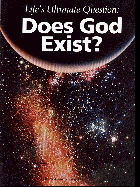|
| HOME |
ARTISTS
BLAKE / CEZANNE LEONARDO / DELACROIX DURER / INGRES MICHELANGELO / RENOIR REMBRANDT / RUBENS
MUSICIANS
BACH / BEETHOVEN MOZART / HANDEL / HAYDN LISZT / MAHLER / PUCCINI RACHMANINOFF/SIBELIUS VIVALDI
PHILOSOPHERS
BACON / BARTH / BERGSON DESCARTES / FICHTE HEGEL / HUME / KANT KIERKEGAARD / LEIBNIZ MARITAIN / MILL / PASCAL ROUSSEAU / WEIL WITTGENSTEIN
SCIENTISTS
COPERNICUS / BRAHE EINSTEIN / FARADAY GALILEO / KEPLER NEWTON / PASTEUR / NOBELISTS / OTHER SCIENTISTS
WRITERS
BAUDELAIRE / BRONTE BROWNING / CHECKOV CHAUCER / DANTE DICKINSON / DONNE DOSTOEVSKY / ELIOT FRANKLIN / GOETHE / KAFKA / LOWELL / PUSHKIN / SHAKESPEARE / TOLSTOY
|
COPERNICUS |
|
|
|
“For who, after applying himself to things which he
sees established in the best order and directed by divine ruling, would not through
contemplation and them and through a certain habituation be awakened to that which is best
and would not admire the Artificer of all things, in Whom is all happiness and every good?
For the divine psalmist surely did not say gratuitously (Copernicus, 1873, 10-11)
“God, without whom we can do nothing.” (Copernicus, 12) ________________
|
|
|

